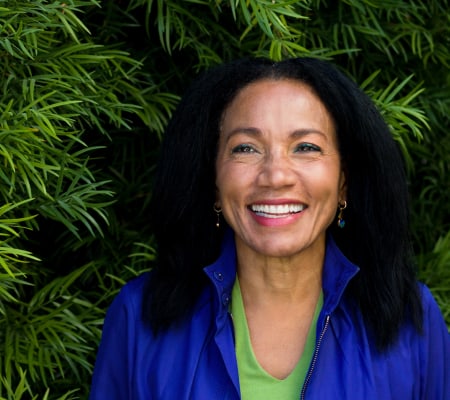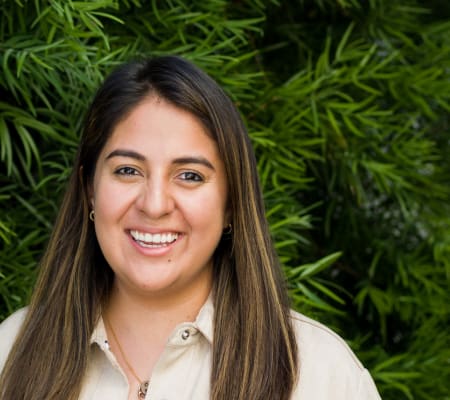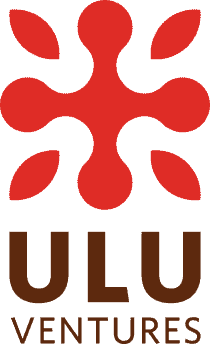Our
approach
The basics
We primarily invest in companies headquartered in the United States and a significant number of our founding teams are located in Silicon Valley and other US technology hubs. We understand that the future of work is changing and have no requirements other than your startup must be incorporated in the state of Delaware.
Seed-stage is our focus. This includes pre-seed, seed, and post-seed.
We put a lot of stock in referrals from our colleagues, co-investors, portfolio teams, and trusted networks. Those kinds of introductions are helpful.
Having said that, we appreciate hustle and grit. We understand that a requirement for a “warm intro” can also create barriers to conversations and capital, which serve none of us well.
If you have a big idea and feel like it’s a good fit for Ulu, begin the conversation by telling us about it here.
How we invest
We are software and internet investors. We’ve made many investments in enterprise software, future of work, fintech, edtech, and blockchain and we have recently begun making more investments in areas such as digital health and sustainability. We are always open to new and expanding views for the future.
We are also heavily involved in the Stanford community and invest significantly into companies that are a part of this ecosystem.
When you net it all out, we consider three primary decision criteria for all Ulu investments: a visionary entrepreneur, a home-run market opportunity, and an attractive risk/reward tradeoff.
Ulu’s process for evaluating market opportunity and risk/reward trade offs is grounded in the principles of decision analysis, a rigorous and sophisticated set of tools that have been adopted as best practice in industries analogous to venture, such as pharmaceutical R&D and upstream oil and gas exploration. All three industries require large amounts of capital to take ideas to scale, face significant uncertainty, and achieve success (if ever) many years after the original investment. Ulu believes it is the first firm to apply this best-in-class decision making process to venture.
Ulu’s process aims to: 1) structure intuition and apply it intelligently to investments, avoiding cognitive biases common in venture capital; 2) systematically identify key drivers of risk and uncertainty, streamlining due diligence; and 3) calculate the probability-weighted cash-on-cash return for any investment, ensuring consistent decision making across stages and sectors. Ulu’s target return for each investment is a probability-weighted multiple (cash on cash) return of 10x or greater.
We look for three key things:
Domain expertise
In the enterprise, there are often good reasons for seemingly outmoded behaviors. A successful new solution usually must address, and even respect, these underlying reasons. This subtlety makes it difficult for outsiders to empathize with their target market, especially when insiders can’t articulate why things are done a certain way. Hence entrepreneurs with domain expertise are often more likely to develop new solutions with a high chance of adoption. That said, we also love entrepreneurs with domain expertise who are contrarian, with compelling insight into why existing behaviors are doomed, destined for disruption.
Committed and diverse founding teams
Launching a startup takes a huge amount of effort. We favor entrepreneurs who are 100% committed to launching their startup with no significant outside commitments. Founder vesting is a strong signal that the entrepreneurs are committed to the long term and willing to align interests with investors.
We also love to see diverse teams and invest in all types and compositions of founding teams. Oddly, some folks have told us they think diversity means “minority” only. At Ulu, it means all of us, understood to be of equal worth, valued for what we bring that’s different, working together. Diversity is an essential part of Ulu’s investment thesis and it is grounded in the lived experience of our founders as well as abundant empirical evidence.
Signs of early traction
We are seed-stage investors and don’t expect our teams to have typical Series A business metrics such as ARR run rates of $2M-$3M. However, we prefer to have early signs of product market fit that are often demonstrated by a pipeline of potential customers, maybe a beta customer, or some form of paid or engagement validation for the product or service.
While timing can vary greatly (from a week to years) depending on when founders reach out to us and the relationships we cultivate, all investments go through the same four core steps.
Step 1: Screening
We generally read all incoming email regardless of the source. Our primary objective is to determine whether there’s a fit to our investment rubric. Where that appears not to be the case, we will decline the opportunity immediately. If, on the other hand, there appears to be a fit, we dig deeper.
We endeavor to screen every pitch we receive within 10 business days, and usually get it done in fewer than five. If you would like us to consider your company, the best way to reach us, even with a referral, is through our contact page. It’s monitored by more people!
Step 2: First Meeting
In almost all cases, the next step is a call with someone from our investment team. These calls, 30 – 60 minutes in length, are a chance for us to hear directly about your business and your “origin story.” Our rubric continues to guide our thinking and our inquiry as we seek to understand your fit with our investment thesis, the market opportunity you see, the quality of your team, your big idea and how it takes form in an offer, and the basics of how you go-to-market.
While we describe this as a “first meeting,” this step may require more than one conversation.
Step 3: Second Meeting
If we’ve gotten this far, we’ve done initial due diligence, spoken with the founding team, and discussed the opportunity at least once in our weekly investment committee meeting. The “second meeting” is typically the first time a startup founder speaks with one or both of our Managing Directors, Miriam Rivera and Clint Korver. Prior to this conversation, we typically ask for access to your data room.
Step 4: Marketing Mapping
We apply a unique-to-Ulu decision analysis process designed specifically for the VC world called “Market Mapping.” It’s a collaborative learning process where the data underlying our decision to invest (or not) are shared with our entrepreneurs.
Market Mapping is a 3-hour exercise with the entrepreneurial team to map the key drivers of risk and return for the startup and its market. There’s no pressure on entrepreneurs to “pitch”; rather, it’s a collaborative process designed to help both sides better understand the company’s economic potential.
Based on this meeting and research done by the Ulu team, we then create a spreadsheet decision model that calculates a probability weighted multiple on invested capital (PWM). If the PWM is greater than 10x and other diligence is successfully completed, we invest (subject of course to final due diligence).
Step 5: Final Due Diligence (RUBS)
If we’ve made it through Step 4, we’re likely talking about the details for doing a deal together. We sometimes call this the RUBS call or “are you being sued” conversation, as it centers on discovering capitalization, legal and governance risks that could make the deal hard to complete or cause problems later in the life of the company. This step also includes detailed legal diligence, involving document review in key areas and a deeper analysis of your data room. During this review process, we are often also discussing with you our ideas for a term sheet or reacting to terms that you’ve received from other investors.
From DA’s theoretical origins, we have customized its practical application for the VC world in a unique-to-Ulu process called “Market Mapping.” It’s a collaborative learning process where the data and assumptions underlying our decision to invest, or not, are shared with our entrepreneurs.
Market Mapping is a 3-hour exercise with an entrepreneurial team to create a map of a startup’s market opportunity. There’s no pressure on entrepreneurs to “pitch;” rather, it’s a collaborative process designed to help both sides better understand the company’s economic potential. It’s a key step in our diligence and the beginning of our risk/return modeling. Clint Korver illustrates in this video how the market mapping session works.
Meeting goals
Throughout the market mapping meeting, our goals are to do the following:
- Better understand the qualitative drivers of a startup’s market opportunity
- Calculate the total addressable market (TAM) with bottom-up data
- Identify the key drivers of risk and value
- Mitigate Ulu’s cognitive biases by using a common framework and explicit decision criteria
- Collect key information for our decision model
Meeting Agenda
Segment opportunity into target (or “sweetspot”) and adjacent markets
- Create a bottom-up structure for calculating the Total Addressable Market (TAM) of each segment
- Assess each element of the structure using ranges
After the meeting we use our judgment and benchmark data to assess the remaining factors needed to complete our risk/return decision model. This includes key risks at each life stage of the company, market share, dilution, exit multiples, etc.
So, what do our entrepreneurs think of our rigorous decision-making process? They love it! They often say market mapping was the most value-added part of their fundraising process. Entrepreneurs who have multiple term sheets often elect to take Ulu’s investment because of the insights into their business they obtained through our process.
For further reading, here is a Kauffman Fellows Report article by Clint Korver on decision analysis in venture and the market-mapping process.
If you are a good fit for our investment thesis, please tell us here!
The terms
We don’t have a preference. In most seed-stage deals, we expect to co-invest with other institutional investors. Our experience indicates we lead seed investment rounds approximately one-third of the time.
Ulu’s typical initial investment has grown over the years. In our latest fund, our standard check size will be $2M. Having said that, we see a lot of variability in capital needs and risk/return characteristics at the seed-stage. As a result, we have written smaller and larger checks into seed rounds and will work with you on what makes the most sense.
We do not.
Our first principle is to select the format (and the valuation) that best sets up the team for success. That could be preferred shares in a priced round, a convertible note, or a SAFE.
Many VCs reserve pro-rata rights with the intention of investing through many (perhaps all) subsequent financing rounds. We do it a little differently.
Instead, we evaluate follow-on investment opportunities using exactly the same financial hurdle and criteria we apply to any investment. If a follow-on round clears Ulu’s risk/return criteria of 10x Probability Weighted Multiple (PWM), it becomes investible and we consider it.
To be transparent and provide real data, we’ve made follow-on investments in about one-third of the firms in which we have initially invested.
We do not.
Instead, we want to work with you to raise the amount of capital that best fits your needs and to build a strong syndicate.
We do not generally require a board seat to invest and only occasionally do we take them. We are always happy to advise and support Uluprenuers regardless of our board status. We often give up a board seat at Series A to allow us to support our Seed stage portfolio most effectively. If you feel strongly about having or not having a board, or when Ulu will roll off your board, please let us know your preferences and reasoning early.
The firm
Ulu Ventures is an investment firm powered by a vision, driven by a mission, and brought to life by a vividly textured and diverse ensemble of human beings. The company was born from the lived experiences of our founders, Miriam Rivera and Clint Korver. Over a decade and half ago, Miriam and Clint started looking for, encouraging, funding, and supporting diverse teams, especially those other VCs were ignoring.
As it turns out, Miriam and Clint were “right” and Ulu has helped fund some extraordinarily successful companies created by diverse and exciting founder teams—who are now “exiting” through public offerings.
Being contrarian and “right” helped the firm take the next big steps, raising a first and second institutional fund (from $3.5M, to $66M, to $138M), as well as building a talented and diverse team.
We expect to invest in as many as 50 new companies each year. We’ve thought long and hard about how we want to construct our portfolio and based on probabilistic reasoning, we believe a portfolio of at least 70 companies gives a 96% chance of investing in at least one outlier with corresponding superior risk adjusted returns and best balances diversification of early stage risk with practical considerations of deal flow and support.
Ulu is a minority- and woman-led firm, with 60% female and minority in terms of partner composition—an exceedingly rare occurrence in venture capital.
Having spent more than two decades in “the Valley,” we have observed that most VC “pattern matching” overlooks entrepreneurs who come from diverse communities and backgrounds.
For example, in 2021, all-women teams received 2.2% of VC dollars, 5.4% of VC-backed companies had women CEOs, and Latinx and African American founders represented less than 3% of entrepreneurs awarded venture capital. We believe there is significant market opportunity in providing access to capital for these underrepresented founders and as a result, Ulu focuses attention on sourcing great entrepreneurs in these and other historically underrepresented groups (HUGs), including other US-born minorities (e.g., those of Asian, Indian, and Middle Eastern ancestry) and entrepreneurs who are immigrants of non-European ancestry.
It’s important to note that Ulu invests in entrepreneurs of all kinds. White men comprise the majority of Ulu founders, as one might expect given the composition of the IT sector. However, by applying the same criteria to all entrepreneurs—regardless of gender, race, or heritage—we find that talent and great returns come in many colors. In Ulu Fund II, for example, 27% of the companies had a woman CEO and 8% had a Latinx or African American CEO. Over 80% of Ulu’s portfolio companies have a member of a HUG on the founding team.
What's it like to work with Ulu?
We believe that entrepreneurs do their best work unencumbered. How involved we are is up to you, the needs of your business, and how aligned our expertise may be.
We have a robust founder support program. From in-person and virtual events to self-service resources and community platforms, we have a variety of ways to support our Uluprenuers. In 2022, we are back hosting in-person events for our founder community, such as office hours or meals in various cities in the United States. We have also been building out content and fundraising support in our “Ready for A” program, where we aim to help our portfolio companies raise the next round at a great valuation from top-tier investors. We also provide resources like GetProven, our “Ulu Marketplace,” a comprehensive platform of software and services providers that the Ulu team and portfolio have personally vetted.
However, the Ulu community and network are the best support we can offer. Not only is the Ulu on your side, but the Ulupreneur community is as well. Our portfolio is filled with an incredibly diverse and inspiring group of entrepreneurs who have been in your shoes and want to help.

Champion of the underdog and the longshot
Miriam Rivera

Champion of independent thinkers
Clint Korver

Champion of endurance and grit
Steve Reale

Champion of the transformationist
Kathy Chen

Champion of the consumer
Maria Salamanca
We have tremendous gratitude for being in partnership with Ulu.


